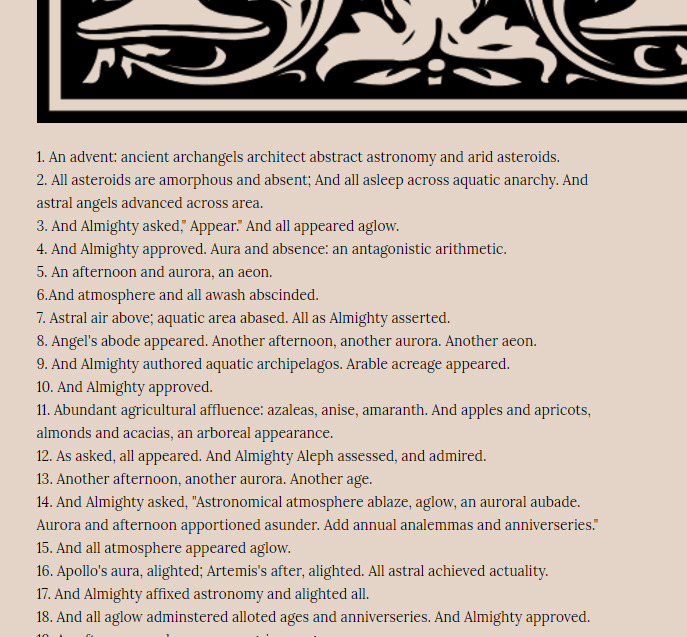
ALPHA (A TRANSLATION OF GENESIS 1)
Here’s a very clever use of word2vec.
Using the word2vec data, Douglas Summers Stay made a list of adjective-noun pairs, indexed by the sum of the two words’ vectors, and used that to translate general words into phrases that started with the desired letter. He then used this as a tool to help with his poetry composition, translating the first chapter of Genesis into words that all started with the letter A.
The resulting phrases remind me of kennings, the Old Norse poetic technique of using compound expressions to obliquely refer to a person or concept. (The Skaldic Project has a database of actual historical examples.)
I’m fond of kennings, parallelism, sestinas, and villanelles: poetic forms that introduce extra structure and constraints on top of the natural sound-rhythms of the words and use repetition to juxtapose imagery. They’re especially useful for procedural generation. These regular forms are things that the machine can more easily detect and compose, even if it isn’t quite sure about the meanings.
The other significant thing to note here is that this was done with a tool, an AI-assistant. Poets have been using tools like this at least since the invention of the rhyming dictionary, but generative methods offer much more flexible ways to explore unexpected connections.
Poetry is, in some sense, a way to get beyond the surface meaning of words and find the hidden patterns. The meaning we didn’t anticipate, the alien way of understanding what it is to be human. And AI, at its best, is about giving us access to alien ways of thinking.
https://llamasandmystegosaurus.blogspot.de/2017/05/alpha.html?m=1
